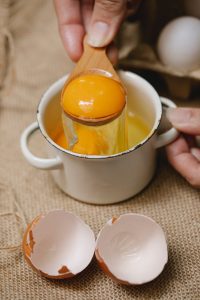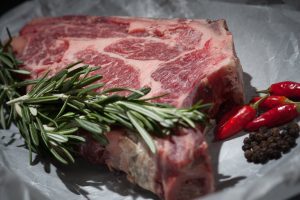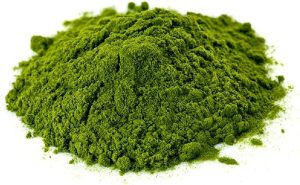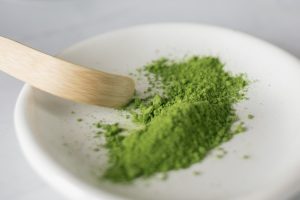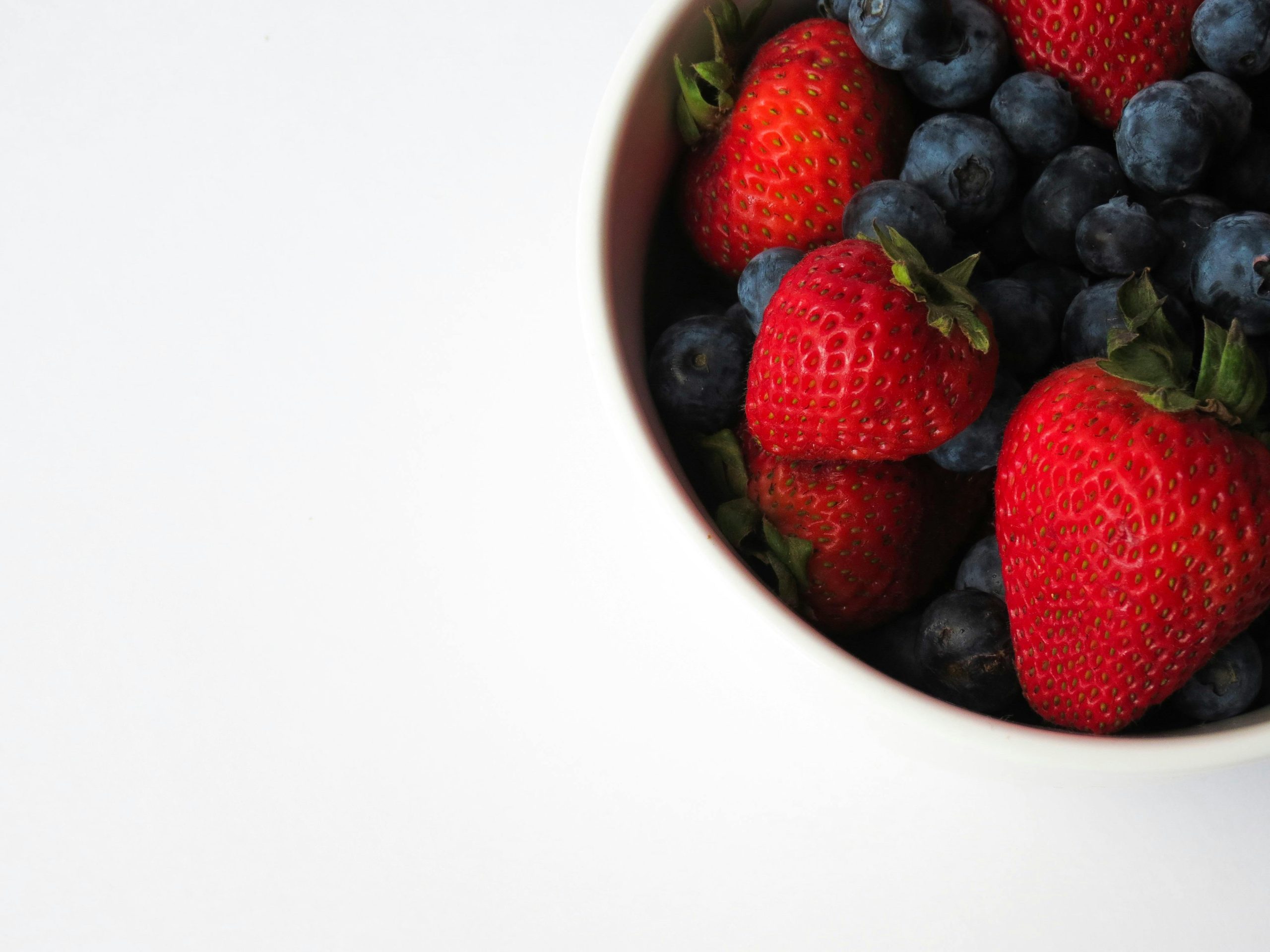
- Overview of Rutin
- Brief History of Rutin
- Functions of Rutin
- Recommended Daily Intake (RDI), Recommended Dietary Allowance (RDA), Adequate Intake (AI), or Reference Nutrient Intake (RNI) for Rutin
- Deficiency of Rutin
- Food Sources of Rutin and Where to Get It From
- Rutin and Its Interaction with Other Medications
- Websites to Probe Into for Information on Rutin
- Disclaimer
Overview of Rutin
Rutin is a bioflavonoid found in fruits, vegetables, and grains, with high concentrations in foods like apples, citrus fruits, and buckwheat. Its chemical structure consists of quercetin and rutinose, imparting antioxidant and anti-inflammatory properties. Rutin is associated with potential cardiovascular benefits, promoting blood vessel health and reducing oxidative stress.
It is available in dietary supplements, often in combination with other bioflavonoids. While rutin is generally considered safe in normal dietary amounts, caution is advised with high-dose supplements due to potential side effects like stomach upset. Ongoing research explores its immune-modulating effects and broader health applications, emphasizing the importance of a balanced diet for optimal nutrient intake.
Brief History of Rutin
Rutin’s history traces back to its discovery in the 19th century. The compound was first isolated in 1842 by the French chemist Henri Braconnot from the buckwheat plant (Fagopyrum esculentum). Initially named “rutoside,” it was later referred to as “rutin” in recognition of its source.
In the early 20th century, rutin gained attention for its role in preventing scurvy, a vitamin C deficiency disease. Researchers observed that foods rich in rutin could alleviate scurvy symptoms, although rutin itself does not possess vitamin C. This led to increased interest in the compound’s potential health benefits.
Over the years, rutin has been studied for its antioxidant, anti-inflammatory, and cardiovascular properties. Its presence in various fruits, vegetables, and grains has made it a subject of research into the health-promoting aspects of plant-based diets.
Today, rutin is commonly utilized in dietary supplements and is recognized for its potential contribution to overall health and well-being. Ongoing research continues to explore its therapeutic applications and mechanisms of action.
| Stage | Details |
|---|---|
| Discovery (1842) | Rutin was first isolated in 1842 by the French chemist Henri Braconnot from the buckwheat plant (Fagopyrum esculentum). Initially named “rutoside,” it was later referred to as “rutin” in recognition of its source. |
| Role in Preventing Scurvy (Early 20th Century) | In the early 20th century, rutin gained attention for its role in preventing scurvy, a vitamin C deficiency disease. Researchers observed that foods rich in rutin could alleviate scurvy symptoms, although rutin itself does not possess vitamin C. This led to increased interest in the compound’s potential health benefits. |
| Exploration of Properties | Over the years, rutin has been studied for its antioxidant, anti-inflammatory, and cardiovascular properties. Its presence in various fruits, vegetables, and grains has made it a subject of research into the health-promoting aspects of plant-based diets. |
| Utilization in Dietary Supplements | Today, rutin is commonly utilized in dietary supplements and is recognized for its potential contribution to overall health and well-being. |
| Ongoing Research | Ongoing research continues to explore rutin’s therapeutic applications and mechanisms of action. |
Functions of Rutin
Rutin, a bioflavonoid found in certain plants, is associated with various potential functions and health benefits. Some of its key functions include:
- Antioxidant Activity:
- Rutin possesses antioxidant properties, meaning it can neutralize free radicals in the body. Free radicals are molecules with unpaired electrons that can cause oxidative stress, and rutin’s antioxidant activity helps counteract this stress, potentially reducing cell damage.
- Anti-Inflammatory Effects:
- Studies suggest that rutin may have anti-inflammatory effects. By modulating inflammatory pathways, rutin may help alleviate inflammation in the body, which is implicated in various chronic conditions.
- Cardiovascular Support:
- Rutin is known for its potential cardiovascular benefits. It may contribute to heart health by promoting the strength and flexibility of blood vessels, reducing the risk of blood clot formation, and supporting overall vascular function.
- Immune Modulation:
- Some research indicates that rutin may have immune-modulating effects. It may influence the activity of certain immune cells, potentially contributing to a balanced and responsive immune system.
- Capillary Strength and Permeability:
- Rutin is believed to enhance the strength and permeability of capillaries (small blood vessels). This can be beneficial for overall vascular health and may contribute to conditions such as varicose veins and hemorrhoids.
- Potential Cancer Protective Effects:
- There is ongoing research into rutin’s potential role in cancer prevention. Some studies suggest that its antioxidant and anti-inflammatory properties may play a role in protecting against certain types of cancer, but more research is needed to establish definitive conclusions.
- Skin Health:
- Rutin’s ability to support blood vessel health and its antioxidant properties may contribute to skin health. It is sometimes included in topical formulations for its potential benefits in reducing skin redness and inflammation.
- Neuroprotective Effects:
- Emerging research suggests that rutin may have neuroprotective effects. It may help protect nerve cells from damage, potentially offering benefits in conditions related to neurodegeneration.
It’s important to note that while rutin shows promise in these areas, more research is needed to fully understand its mechanisms of action and establish definitive recommendations for its use. As with any supplement or dietary component, it’s advisable to consult with a healthcare professional before incorporating rutin into your routine, especially if you have existing health conditions or are taking medications.
Recommended Daily Intake (RDI), Recommended Dietary Allowance (RDA), Adequate Intake (AI), or Reference Nutrient Intake (RNI) for Rutin
There is no established Recommended Dietary Allowance (RDA), Adequate Intake (AI), or Reference Nutrient Intake (RNI) specifically for rutin. Rutin is often considered a bioactive compound rather than a nutrient with established daily requirements.
Rutin is obtained through the consumption of foods rich in this bioflavonoid, such as fruits, vegetables, and grains. The amount of rutin in these foods can vary, and there is no universally agreed-upon daily intake target.
If you are considering rutin supplements for potential health benefits, it’s crucial to consult with a healthcare professional. Supplements may provide rutin in concentrations higher than those found in typical diets, and their use should be approached with caution to avoid potential side effects or interactions with medications.
It’s advisable to check with more recent sources or consult a healthcare professional for any updates on recommended intakes or guidelines related to rutin.
Deficiency of Rutin
A deficiency of rutin itself is not identified, a diet lacking in a variety of fruits, vegetables, and whole grains—common sources of rutin—could contribute to a deficiency in various nutrients and phytochemicals, impacting overall health.
If you have concerns about your nutrient intake or are considering supplements, it’s advisable to consult with a healthcare professional or a registered dietitian. They can provide personalized advice based on your individual health status, dietary habits, and potential need for specific nutrients or bioactive compounds. Keep in mind that information may have evolved since my last update, so checking with current sources is recommended.
Food Sources of Rutin and Where to Get It From
Rutin is a bioflavonoid that is naturally found in various foods, particularly fruits, vegetables, and certain grains. Here are some common food sources of rutin:
- Citrus Fruits:
- Oranges, grapefruits, lemons, limes
- Berries:
- Blueberries, blackberries, strawberries
- Apples:
- Apples, especially in the peels
- Buckwheat:
- Buckwheat is a particularly rich source of rutin, found in both the seeds and the leaves.
- Onions:
- Red and yellow onions are good sources of rutin.
- Green Tea:
- Green tea contains rutin, contributing to its antioxidant properties.
- Asparagus:
- Asparagus is another vegetable that contains rutin.
- Cherries:
- Cherries, especially tart cherries, contain rutin.
- Apricots:
- Apricots, particularly in the skin, contain rutin.
It’s important to note that the rutin content can vary in different varieties of fruits and vegetables and can also depend on factors such as the ripeness of the produce and how it’s prepared and cooked.
If you’re interested in increasing your rutin intake, incorporating a variety of these foods into your diet can be beneficial. Consuming fruits and vegetables in their whole, unprocessed form is generally recommended to maximize the potential health benefits associated with rutin and other phytochemicals. Additionally, remember that a balanced and varied diet contributes to overall health and well-being. If you have specific health concerns or dietary needs, consider consulting with a healthcare professional or a registered dietitian for personalized advice.
Rutin and Its Interaction with Other Medications
Rutin, like many dietary supplements and natural compounds, has the potential to interact with certain medications. It’s important to be aware of these potential interactions and consult with a healthcare professional before adding rutin supplements to your routine, especially if you are taking any medications. Here are some considerations:
- Blood Thinners (Anticoagulants/Antiplatelet Drugs):
- Rutin may have antiplatelet effects, which means it could potentially increase the risk of bleeding when taken with blood-thinning medications such as warfarin, aspirin, or clopidogrel. Combining rutin with these medications may require careful monitoring and adjustment of the medication dosage.
- Anti-Hypertensive Medications:
- Rutin has been studied for its potential cardiovascular benefits, including its effects on blood vessels. If you are taking medications for high blood pressure, combining rutin supplements with these medications may have additive effects, potentially causing blood pressure to drop too low.
- Cytochrome P450 Interactions:
- Rutin may interact with enzymes in the liver, such as cytochrome P450 enzymes, which are involved in the metabolism of various drugs. This interaction could affect the blood levels of certain medications, potentially leading to increased or decreased efficacy.
- Calcium Channel Blockers:
- Some studies suggest that rutin may have calcium channel-blocking effects. Combining rutin with medications that also have these effects, such as certain calcium channel blockers, could potentially lead to additive effects.
- Non-Steroidal Anti-Inflammatory Drugs (NSAIDs):
- Rutin has anti-inflammatory properties, and combining it with NSAIDs may have additive effects on inflammation. This could be relevant for individuals using NSAIDs for pain relief or anti-inflammatory purposes.
- Diabetes Medications:
- Rutin may influence blood sugar levels, and combining it with medications for diabetes may affect glucose control. It’s essential for individuals with diabetes to monitor their blood sugar levels closely when considering rutin supplements.
Always inform your healthcare provider about any supplements you are taking, including rutin, and disclose your complete medication list. This information will help your healthcare provider assess potential interactions and make appropriate recommendations. Individual responses to supplements can vary, and professional guidance is crucial to ensure your safety and well-being.
Websites to Probe Into for Information on Rutin
There is a compilation of information about rutin from the provided websites given below:
- WebMD – Rutin:
- WebMD offers information on rutin, including its uses, side effects, interactions, and potential health benefits.
- RxList – Rutin:
- RxList provides information on rutin, covering its uses, potential side effects, and interactions with medications.
- ScienceDirect – Rutin:
- ScienceDirect discusses rutin in the context of nursing and health professions, covering various aspects related to its use.
- Verywell Health – The Benefits of Rutin Supplements:
- Verywell Health explores the benefits of rutin supplements, including potential health advantages and considerations.
- Healthline – Potential Benefits of Rutin:
- Healthline covers the potential benefits of rutin, including its antioxidant properties and potential impact on health.
- Wikipedia – Rutin:
- Wikipedia provides a comprehensive entry on rutin, covering its chemical structure, sources, and various aspects of its use.
- Vinmec – What Does Rutin C Do?:
- Vinmec discusses the role of rutin C and its potential benefits.
- 1mg – Rutin Tablet:
- 1mg provides information on rutin tablets, including dosage and other relevant details.
- Hindawi – Rutin:
- Hindawi presents a research article on rutin, exploring its potential therapeutic applications.
- Dr. Axe – Rutin:
- Dr. Axe discusses rutin and its potential health benefits, including its role as a flavonoid.
- Holland & Barrett – What Is Rutin and Benefits:
- Holland & Barrett provides information on what rutin is and its potential benefits for health.
- Drugs.com – Rutin Side Effects:
- Drugs.com outlines potential side effects associated with rutin.
Feel free to explore these sources for a comprehensive understanding of rutin and its various aspects. As always, consult with healthcare professionals for personalized advice and recommendations.
Disclaimer
The information is solely provided for educational purposes. It is not intended to diagnose, treat, cure, or prevent any disease. Seek the advice of your physician or qualified healthcare provider with any questions you may have regarding a medical condition at all times. Never disregard professional medical advice because of something you have read or learned from this article.

